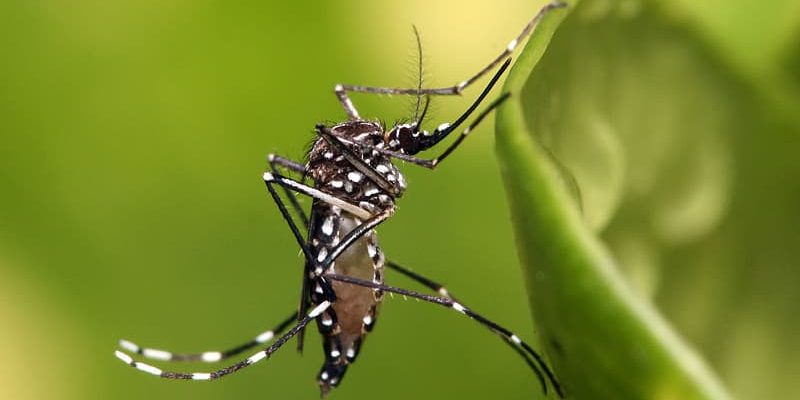The presence of the tiger mosquito, which grows in France every year, can be bothersome during the summer due to bites throughout the day. In addition, the insect can be a potential vector of viruses such as dengue, zika or chikungunya.
To make the most of your outdoors this summer, you need to act now. To do this: you must start hunting stagnant water as soon as the fine weather arrives in order to protect yourself from tiger mosquitoes. This is because females use small amounts of water to lay their eggs.
“The equivalent of a capful of water may be enough for them,” warns theARS of New Aquitaine.
The agency indicates that the tiger mosquito moves and lives within a radius of 150 meters around the nesting site. So the one who bites you was born in your neighborhood. “80% of mosquitoes are born on private property… We therefore all have a big role to play,” writes the ARS.
Beware of stagnant water
Females lay up to 200 eggs every fortnight which develop in all kinds of containers and reservoirs where water can stagnate. The health authorities therefore recommend eliminating all these potential places: vases, pots and cups, barrels, cans, bungs, gutters, rain manholes, gutters or even in objects left outside (children’s games, tires, equipment works…).
“Also think about maintaining graves in cemeteries, places conducive to the development of mosquitoes,” adds the ARS.
When it comes to flower and plant pot saucers, a tip is to put sand on them. “Water will be present for the plant but the mosquito will not be able to lay eggs there,” continues the agency.
The risk of water collectors
The health authorities particularly insist on the control of rainwater collectors. According to the ARS of Nouvelle-Aquitaine, in 2022 in Gironde, more than half of the “larval breeding sites” discovered were located in a water collector.
In fact, even with a lid closed, the mosquito can enter and exit the water collector through the gutter. To avoid this scenario, it is advisable to install a mosquito net or fabric between the outlet of the gutter and the surface of the water.
In the same way, it is prudent to cover all other water tanks that cannot be emptied, such as water cans, cisterns, basins or swimming pools out of use with a veil or a simple cloth “to prevent water from stagnating and mosquitoes from accessing it”.
Once a week
“Three simple and essential recommendations to implement from April to October: store, empty and cover all containers in which water accumulates,” summarizes this the prefecture of Haute-Savoie.
And these tasks can be a little tedious since they would have to be repeated once a week due to the number of eggs laid per mosquito and the speed at which they hatch, especially in the heart of summer. From April until at least October, it is recommended to go around the exterior to empty all small accumulations of standing water every seven days. This is particularly the case during periods of rain.
“Invite your neighbors to do the same. The tiger mosquito lives within a radius of 150 meters… Spread the information around you,” encourages the ARS.
In addition, it is also possible to install mosquito nesting traps in order to break their reproduction cycle and thus reduce their presence. In this regard, the Toulouse town hall will distribute 500 traps free of charge to combat the spread of this mosquito.
Virus vector potential
The tiger mosquito is an invasive species that is particularly harmful to humans and reappears every spring and develops until the fall. It has been found in metropolitan territory since 2004, explains the Ministry of Health. Since last year, it has even been established in all regions of France and in 71 out of 96 departments.
Limiting its establishment and its spread each year is essential because it can be a vector of diseases such as dengue, chikungunya or zika. The mosquito can contract one of these diseases by biting an infected person returning from a trip to tropical areas where these viruses circulate. He can then transmit the virus by biting another person.

